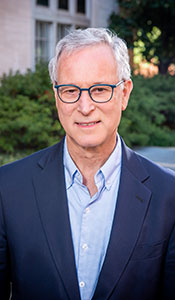As I mentioned in the previous blog, we are pleased to announce the addition of Dr. Ashley Cannon, a genetic counselor and clinical researcher, to our team of specialists in the UAB NF Clinic. With a unique and diverse background that includes a Ph.D. in neuroscience and a degree in genetic counseling (completed at UAB), Dr. Cannon brings a range of capabilities that will further enhance both patient care and clinical research. She will play an integral role in seeing patients in the clinic, helping to identify the needs of individual patients, organizing genetic testing, and providing genetic counseling. In addition, Dr. Cannon will serve a key role in coordinating clinical trials and research studies conducted in the NF research program. I have also asked her to begin the process of establishing our community advisory board, which will be comprised of NF patients and family members who will provide valuable feedback to ensure the NF Clinic is functioning in a way that best meets their needs.
Currently, Dr. Cannon is assisting with final preparations for the upcoming Neurofibromatosis Symposium to be held at the Finley Conference Center in the Kaul Human Genetics Building on Saturday, August 29th. Co-sponsored by UAB and the Children’s Tumor Foundation (CTF), this half-day, free event is designed to provide NF patients and their families with information about a range of NF-related topics including: an overview of neurofibromatosis; updates on clinical trials and other research advances; genetic counseling and the NF registry; pain management; a patient and family roundtable discussion; advocacy, fundraising, and upcoming events in the NF community; and a question-and-answer session. Breakfast, lunch, and childcare will be provided for the convenience of our families. While there is no cost to attend, reservations should be made by August 24th by emailing acannon@uab.edu. This is an invaluable opportunity for NF patients and families – especially those facing a new diagnosis – to gain information, support, and answers to questions about neurofibromatosis. Each year, we look forward to serving NF patients and their families through this important forum that not only provides key information about NF but also offers the opportunity for NF families to gain understanding and strength through sharing their experiences, challenges, and concerns.
Neurofibromatosis Symposium: Family Day 2015
Saturday, August 29th, 2015
Schedule:
08:00-08:30am Register/Breakfast
08:30-10:00am Welcome/NF 101/Updates – Dr. Bruce Korf
10:00-10:30am Break
10:30-11:00am Clinical Trials Update – Dr. Alyssa Reddy
11:00-11:30am Research Studies – Ashley Turner
11:30-12:00pm Counseling Issues/Registry – Ashley Cannon
12:00-12:30pm Pain Management – Dr. James Weisberg
12:30-01:30pm Lunch / Patient and Family Roundtable
01:30-02:00pm Advocacy, Fundraising, Upcoming Events – Renie Moss
On July 17th- 19th, I attended the 4th International RASopathies Symposium in Seattle, Washington. The RASopathies are a group of medical genetic syndromes, including NF1, that have in common the fact that their underlying genetic alterations occur in a critical cellular signaling pathway called the RAS/MAPK pathway. Neurofibromatosis type 1 is caused by a genetic alteration in the gene that encodes for neurofibromin, a protein regulating activity of the RAS signaling pathway that also has a role in cell growth and division. As in NF1, the RAS pathway can be disturbed in a host of other syndromes including Noonan syndrome, cardiofaciocutaneous (CFC) syndrome, Legius syndrome, and Costello syndrome. All RASopathy syndromes affect multiple systems of the body; features such as cardiac disease, growth deficits, facial characteristics, bone and skin abnormalities, and learning and behavior problems are common. However, as with NF1, the presence and severity of these features varies widely among affected individuals.
The purpose of the RASopathies Symposium is to bring together scientists, clinicians, researchers, and affected families to facilitate a collaborative discussion focused on future research, development of therapies, and best clinical practices for RAS/MAPK pathway syndromes. Because NF1 was the first RASopathy to be identified, we in the NF scientific community are much further along than the other related syndromes in our capability to develop clinical trials focused on mechanism-based therapies. This is due in part to the fact that we’ve known about NF1 for a longer period of time and also because it is easier to define what success would look like in an NF patient. It is encouraging that the development of mechanism-based therapies that inhibit the over-activated RAS pathway and other RAS-connected pathways opens new avenues of therapeutic intervention for the many complications of the RAS disorders. Because neurofibromatosis has been a beacon in the realm of mechanism-based therapeutics, other RAS disorders are looking to the NF scientific community for examples in the development of effective treatments; we’re certainly hopeful that we can share valuable information based on our experience with NF and that this shared knowledge will facilitate research that will benefit those with the various RAS disorders.
Director's Blog
A New Specialist Joins the NF Clinic Team, Upcoming NF Symposium at UAB, and Understanding RAS Disorders and their Relationship to NF
- Details
- Written by: Bruce Korf
